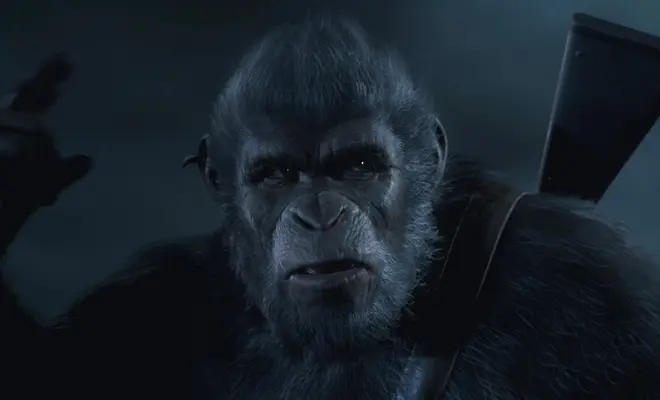Planet of the Apes has asserted itself as a generational franchise. A story whose narrative, driven by political and moral issues, will continue to resonate throughout mankind’s future history.
With such strong name recognition it should come as no surprise that the Planet of the Apes franchise has been the target of the video game industry on more than one occasion. The infamous curse of movie-to-video game translations have proven elusive to overcome, and Planet of the Apes is no exception.
The first Planet of the Apes video game was released back in 2001 as a tie-in with Tim Burton’s ill-fated Planet of the Apes reboot. Rather than parallel the events of that story — or even play within the same sandbox — Planet of the Apes drew inspiration from the original film starring Charlton Heston.
Players assumed the role of astronaut Ulysses, the lone survivor of a crashed expedition who encounters a planet ruled by apes. Players interact with not only recognizable Apes characters from the films such as Zira and Cornelius, but all-new characters including a human resistance.
Developer Visiware designed the game for PC and PlayStation. Development delays generated bad press, as did early gameplay impressions from the media. By the time the 3rd person action/adventure title was released, it had garnered a poor 41/100 on MetaCritic.
What was planned to be a franchise, both for Burton’s reboot film and the video game, quickly evaporated into obscurity when the film fizzled out at the box office. Without new media to draw upon, the fate of a second Planet of the Apes video game was left up in the air.
Surprisingly a decade later saw the release of Rupert Wyatt’s Rise of the Planet of the Apes. Rather than retell the story of the original film and the reboot, Rise dials back the clock to how the original Ape leader, Caesar, gained his intelligence and led an uprising against his human oppressors.
Rise initially drew a lot of flack for attempting yet another reboot as well as using CGI and motion-capture for Caesar and other apes in the film. Where Burton’s reboot chose style over substance, Wyatt’s film was deeply emotional and moving. It became a critical hit and generated two successful and thought-provoking sequels to complete a new trilogy.
The success of the new trilogy stimulated developer Imaginati Studios and publisher FoxNext Games to roll the dice on a new Planet of the Apes video game. Dubbed Planet of the Apes: Last Frontier, it was released in the fall of 2017 on PlayStation 4 to once again mixed-to-negative reviews.
Last Frontier turned the Apes gaming genre on its head. Where the original game relied on action, Last Frontier took after Heavy Rain with a cinematic experience driven by the player choosing paths as the narrative pushed forward.
MetaCritic scored Last Frontier as 59% with user reviews coming in even lower at 50%. According to EuroGamer, the game’s flashy visuals and decent narrative are undone by forgetting to let the player become involved.
There are a couple other Planet of the Apes video game options. The recently released Crisis on the Planet of the Apes VR experience for PlayStation scored a woeful 47 percent. Even slots video games have gotten in on the franchise with Apes-related online slot machines.
With all the great history, lore and potential for action set-pieces, it’s amazing that a game developer hasn’t figured out how to properly capitalize on the Planet of the Apes franchise. Now that the current trilogy is wrapped up with a tidy bow, we might have to wait for the next one before someone else takes a stab.



